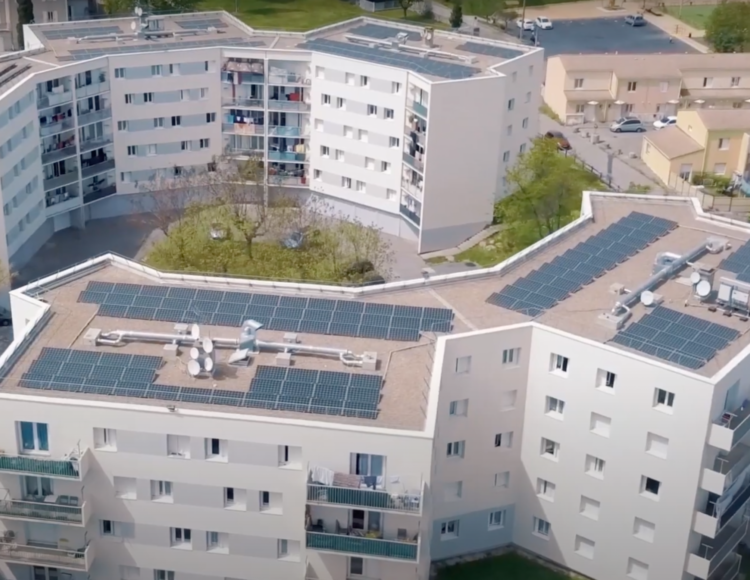The REPowerEU Action Plan of the European Commission launched on May 18th puts forward a mix of measures that are expected to make the bloc energy independent, lower CO2 emissions, and decrease the currently unbearable energy bills. While the majority of the Plan’s objectives can only be implemented in the medium to longer term, Housing Europe believes that now is the time for affordable and social housing providers to be enabled to supply vulnerable tenants with the energy produced in their buildings. Having the experience to support people to find their path out of energy poverty and maintaining a day-to-day relation with their tenants, the sector is also well-placed to speed up behavioural changes, and has been leading the way on this front.
“The ambition of social and affordable housing providers – to deliver a fair and green energy transition – remains unchanged. The challenges ahead of us, however, are continuously growing. Inflation has risen to nearly 8% in March 2022, and more than one-third of this high percentage comes from electricity, gas, and other household fuels. This is resulting in massive pressure on households, but also on the capacity of our sector to carry out renovation and improve homes. In the meantime, our network reports a slowdown of over 60% of the much-needed renovation and energy-efficiency projects due to erratic and rapid increases in the prices of materials” Housing Europe’s President, Bent Madsen, said immediately after the launch of the Action Plan.
In the past years, social and affordable housing providers have been mobilising to accelerate rooftop energy generation. In Flanders (Belgium) for instance, the local social housing providers have been supported by the EU Elena grant programme to invest €231 million over 4 years, installing almost 650 000 on nearly 60 000 buildings, representing a production of 207 286 MWh per year. The project has all it takes to alleviate energy poverty and yet, in their ambition to create energy communities, local social housing providers have been hampered by national legislation, requesting them to create legal entities or to pay if one of their dwellings transfers energy to another building from their stock.
The Secretary General of Housing Europe, Sorcha Edwards, said that “the transposition of the Renewable Energy Directive II into national law is proving, in many cases, to be overly complex. This is leading some social and cooperative housing actors to abandon their ambitions to become de facto energy providers. REPowerEU clearly shows that the European Commission is extremely motivated to switch to green energy alternatives, and our network calls on the EU and Member States to take the necessary steps to support our sector to play a major role in this. Successful pilot energy generation schemes show that when this is facilitated, the benefits for those living in social and cooperative housing, in terms of lower energy bills, can be substantial.
The Renovation Wave must continue, however reality bites as in a context of growing demand also because of migration from Ukraine, national price caps in the social housing sector have brought multiple construction projects but also renovation projects to a halt. Today, essential projects funded by NextGenerationEU are very often subject to short deadlines as a condition to receive funding, and the experience of the sector renovating 200,000 homes a year shows that flexibility could deliver better and more qualitative results. Finally, further improving standardisation can also play a role in bringing down construction component prices as several examples from across Europe show that in exceptional circumstances, the delivery of essential pieces has delayed even more renovation works.
Along with the launch of REPowerEU, the President of the European Commission Ursula von der Leyen also announced the EU action in the context of the on-going horrific circumstances in Ukraine from a current security perspective but also looking forward to post-conflict actions needed. Reacting to her call to invest in the wider reconstruction of the country and in view of the extensive damage to homes, Housing Europe is ready and has the capacity to be a ‘like-minded partner’ in the area of housing through the provision of expertise on inclusionary policies.
“For the Housing Europe network, it is clear that those returning to war-torn cities and towns will not be able to contribute to recovery without first meeting the basic need of a roof over their head,” Sorcha Edwards concluded.
Watch the recording of Housing Europe’s Webinar from the day before the launch of REPowerEU in which we discuss the impact of the solutions proposed in the RepowerEU action plan on the social, cooperative, and public housing sector.
